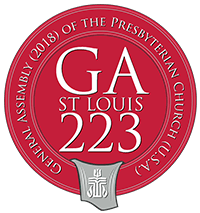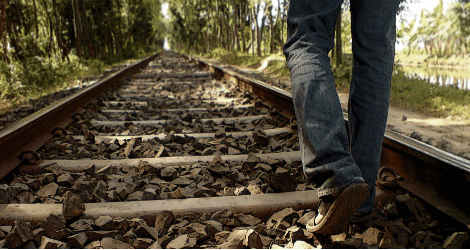Our Maps: Scripture
Matthew 6:9–1320
It is often noted that the Lord’s Prayer is eschatological in nature, looking forward to the coming of the kingdom of God.21 However, what is too often missed is that the prayer reflects deep commitment to and yearning for social righteousness as part and parcel of the coming of that kingdom.22 To know God as “Father” is to yearn for God’s promised kingdom, marked by the grace and love of which we have tasted. To watch for the kingdom is to imagine what God desires, which in turn prepares us to participate in God’s will as doers of justice, lovers of kindness, and humble walkers with God. When we imagine God’s will and begin to live into God’s creative and redemptive intentions, we make manifest concrete signs of God’s kingdom on earth. Where social righteousness is promoted, bread is eaten, human beings forgive each other, and the children of God are delivered from evil.
Micah 6:8
“What does the Lord require of you?” the verse asks. The response delineates three things: (1) “to do justice,” (2) “to love mercy” (NIV), and (3) “to walk humbly with your God.” While Micah 6:8 in one sense reads as though we are being let off easy (after all, it doesn’t launch into lengthy, detailed directions about how to prepare animal sacrifices or engage in other worship practices), anyone who is attentive to the three imperatives recognizes they are challenging to realize fully in practice.23 These imperatives can help us imagine what the kingdom of God looks like and, therefore, begin participating in the concrete work of the kingdom.
Proverbs 14:34
“Righteousness exalts a nation,” we are instructed, “but sin condemns any people” (NIV). This text seems to make one of the most direct references to social righteousness in the biblical witness.
Society’s righteousness is the fruit of our righteousness as it is grounded in God’s righteousness. In talking about our righteousness leading to society’s righteousness, the word our refers to the human beings created in the image of God to live as God’s children. By society’s righteousness, I refer to the infrastructure, systems, and institutions that manifest the righteousness being promoted by the children of God.
In my pondering, I struggle with three major questions:
- Whose righteousness exalts a nation?
- What is righteousness?
- How does righteousness exalt a nation?
In short, here are my responses to the three major questions:
- Righteousness is first God’s, then ours (insofar as we are grounded in God’s), and then society’s (insofar as the fruit of our righteousness, grounded in God’s, becomes manifest).
- According to Micah 6:8, righteousness is doing justice, loving mercy, and walking humbly with God.
- Righteousness exalts a nation by bringing to “earth as it is in heaven” the kingdom of God—a kingdom characterized by daily bread, forgiveness, and deliverance from evil (Matthew 6:9 –13).
_________________
Notes
1. The aggressive and effective politics of the far right are not directed at changing the world as much as they are directed at preserving a space in which professing Christian believers can thrive in the midst of an otherwise (and inevitably) unrighteous world. In the terms of the Christian tradition, they emphasize what is known as the “civil use” of the law.
2. See, for example, soyouwanna.com/site/toptens/books/booksfull.html.
3. An important example of this is a recently reprinted book first published by Walter Rauschenbusch in 1907. Originally titled Christianity and the Social Crisis, the one-hundredth anniversary edition incorporates critical essays written by contemporary theologians under the title Christianity and the Social Crisis in the 21st Century: The Classic That Woke Up the Church (New York: ?HarperCollins, 2007).
4. My assistant, Laura Elly Hudson, did most of the research incorporated into this ?section of the chapter.
5. Jack B. Rogers and Robert E. Blade, “The Great Ends of the Church: Two ?Perspectives,” Journal of Presbyterian History 76 no. 3 (Fall 1998): pp. 181–186.
6. Book of Order, G-1.0200, footnote 2.
7. The UPCNA, founded in 1858, united with the Presbyterian Church in the United ?States of America in 1958 to become the United Presbyterian Church in the United States of America (UPCUSA). The UPCUSA subsequently united with the Presbyterian Church in the United States (PCUS) in 1983.
8. Rogers and Blade, p. 182.
9. Ibid., p. 183.
10. Ibid., p. 184.
11. The following points are drawn from an unpublished report on the minutes prepared by Hudson in 2008.
12. Minutes of the Fifty-Second General Assembly of the United Presbyterian Church of North America, Vol. 12 (Pittsburgh: United Presbyterian Board of Publication, 1910), p. 627.
13. Ibid.
14. Ibid., p. 659.
15. Ibid., p. 660.
16. Wallace N. Jamison, United Presbyterian Story: A Centennial Study, 1858–1958 ?(Pittsburgh: Geneva Press, 1958), p. 97.
17. To read this article, go to witherspoonsociety.org/2004/social_creed.htm.
18. For more information on the new social creed, see “A Social Creed for the 21st ?Century” at pcusa.org/acswp/socialcreed21st.htm.
19. TeSelle, emphasis added.
20. A shorter version of the Lord’s Prayer is found in Luke 11:2–4.
21. Praying the Lord’s Prayer when we gather around the Table of the Kingdom of ?God is one way we remember, and benefit from, its eschatological character.
22. One theologian who makes this connection is Simone Weil. See “Concerning the Our Father,” Simone Weil Reader, ed. George A. Panichas (Mt. Kisco, NY: Moyer ?Bell Limited, 1977), pp. 492–500.
23. Note the similarity, in this respect, to the Greatest Commandment.
_______________________________________
Appendix A
The Social Creed of the Churches
Adopted by the Federal Council of Churches on December 4, 1908
We deem it the duty of all Christian people to concern themselves directly with certain practical industrial problems.
To us it seems that the Churches must stand:
For equal rights and complete justice for all men in all stations of life.
For the right of all men to the opportunity for self-maintenance, a right ever to be wisely and strongly safe-guarded against encroachments of every kind.
For the right of workers to some protection against the hardships often resulting from the swift crisis of industrial change.
For the principle of conciliation and arbitration in industrial dissensions.
For the protection of the worker from dangerous machinery, occupational disease, injuries and mortality.
For the abolition of child labor.
For such regulation of the conditions of toil for women as shall safeguard the physical and moral health of the community.
For the suppression of the “sweating system”
For the gradual and reasonable reduction of the hours of labor to the lowest practical point, and for that degree of leisure for all which is a condition of the highest human life.
For a release from employment one day in seven.
For a living wage as a minimum in every industry, and for the highest wage that each industry can afford.
For the most equitable division of the products of industry that can ultimately be devised. For suitable provision for the old age of the workers and for those incapacitated by injury. For the abatement of poverty.
To the toilers of America and to those who by organized effort are seeking to lift the crushing burdens of the poor, and to reduce the hardships and uphold the dignity of labor, this council sends the greeting of human brotherhood and the pledge of sympathy and of help in a cause, which belongs to all who follow Christ.
The Rev. Dr. Cynthia Rigby is the W.C. Brown Professor of Theology at Austin Presbyterian Theological Seminary, where she has been teaching since 1995. She is an active member of the American Academy of Religion, in which she co-chaired the Christian Systematic Theology section for six years. She also blogs regularly for the Religion section of the Dallas Morning News. Ordained in the PC(U.S.A.), Dr. Rigby is the author of more than thirty articles and book chapters, is the co-editor of Blessed One: Protestant Perspectives on Mary, and holds degrees from Brown University and Princeton Theological Seminary.







Unbound Social